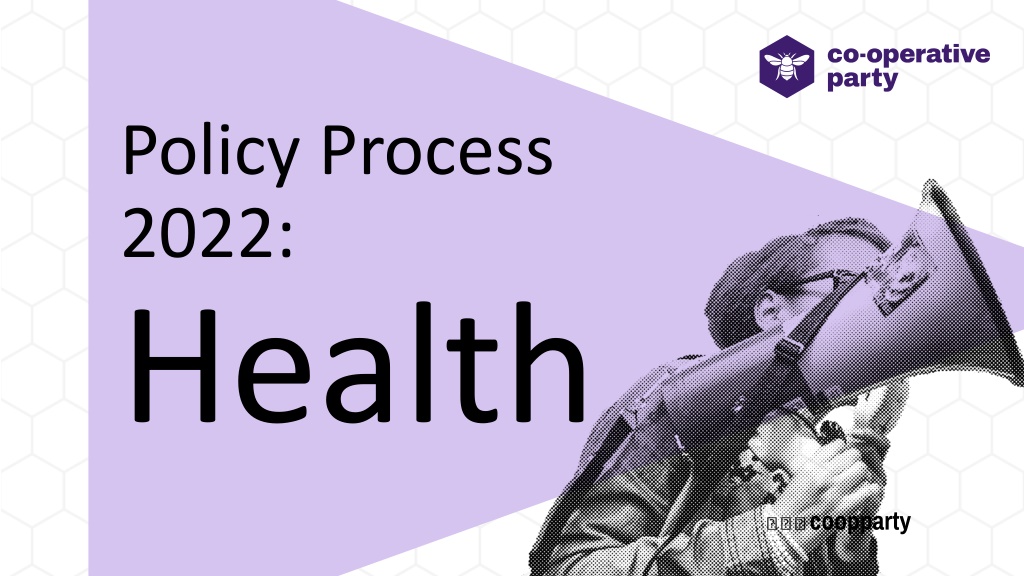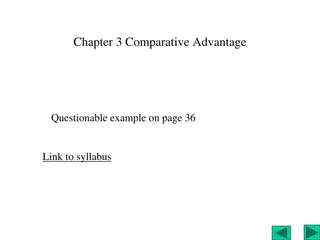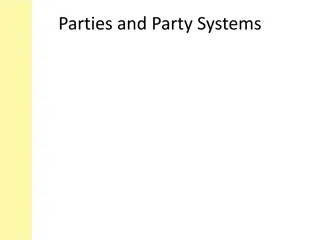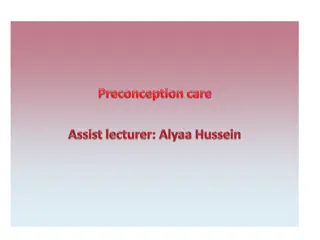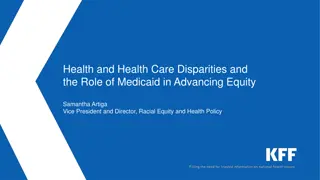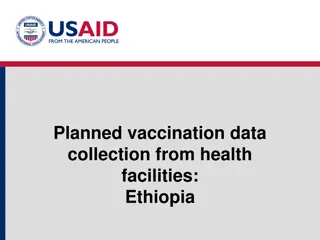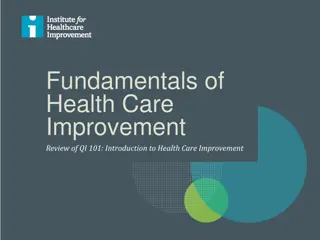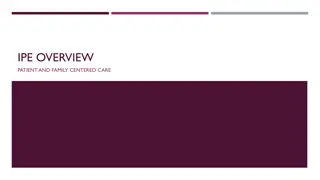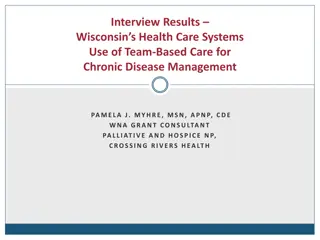Health Care Systems in the UK: A Comparative Analysis
The UK's health care systems are devolved, with separate administrations in England, Scotland, Wales, and Northern Ireland. Variations exist in operational structures, funding mechanisms, and service provisions. This article discusses the challenges faced by the healthcare systems, focusing on health inequalities, governance issues, and the impact of recent events like Brexit and the Covid pandemic. It also explores the emphasis on cooperative and community-led policies to address these challenges and reduce healthcare disparities.
Download Presentation

Please find below an Image/Link to download the presentation.
The content on the website is provided AS IS for your information and personal use only. It may not be sold, licensed, or shared on other websites without obtaining consent from the author. Download presentation by click this link. If you encounter any issues during the download, it is possible that the publisher has removed the file from their server.
E N D
Presentation Transcript
Policy Process 2022: Health coopparty
Policy Process 2022 Policy Process 2022 Our policy platform sets the agenda for our party and its representatives, and puts forward our to-do list for Parliament. In the tradition of co- operation, our policy process is member-led and this is your opportunity to shape the ideas we ll take to all levels of government. Your contributions will be collected and considered by the NEC s policy sub- committee, who use your ideas and feedback to shape policy proposals. These will be brought to the Co-operative Party annual conference in the Autumn for delegates to debate and vote on.
Why health? Why health? The Policy Sub-committee chose health due to the unprecedented pressure the British healthcare system has been under over the last few years. Due to pressures from the Covid pandemic, Brexit and chronic under-funding, the healthcare system faces a range of challenges going forward. Staffing shortages, health inequalities and governance issues have all added to a system which requires new ideas and solutions. We want to explore how to promote co-operative and community-led policies to help reduce inequalities in the health care system.
H Health ealth care & Devolution care & Devolution Health care in the UK is devolved meaning the health care systems are separately administered in England, Scotland, Wales and Northern Ireland. The devolved powers mean the separate nations have different operational structures, funding systems, healthcare provisions and treatment options. The devolved administrations have responsibility for organizational control and funding of the NHS systems, the provision of health services and the prevention, treatment and alleviation of disease, illness, injury, disability and mental illness.
Comparing Health care in Scotland, England, Wales Comparing Health care in Scotland, England, Wales and Northern Ireland and Northern Ireland Wales England NHS Wales delivers services through seven local boards and three trusts. Performance targets are used to maintain quality of care. As with Scotland and Northern Ireland, prescriptions in Wales are free. England s NHS structure is more market led than the other nations, with Clinical Commissioning Groups (CCGs) contracting for services with providers. This facilitates an internal market, and private providers deliver greater provision than other systems. England is the only system which does not have free prescriptions. Northern Ireland Scotland Northern Ireland s NHS, known as Health & Social Care (HSC), is administered more centrally by the Department of Health. The direct provision of services is provided by the Public Health Agency and five trusts. Prescriptions are free in Northern Ireland Scotland s NHS structure has 14 regional boards, which are responsible for delivering care in accordance with performance targets. The system uses less private provision and features free prescriptions and social care for over 65s.
Existing Co Existing Co- -operative Party health policies operative Party health policies The Co-operative Party has previously expressed support for values and principles of Foundation Trust hospitals, which are membership-led organisations. These aim to decentralise decision making in the NHS and give stakeholders greater voice in how and what services are delivered. In our 2019 Manifesto, we called for tougher regulation on Foundation Trusts to make sure they meet their founding principles and work as designed. We support increasing the voice of patients and care providers, who have lived experience of care services. In 2019, we called for representation of these groups on the boards of private care providers, to help make sure that their knowledge and experience of quality care is provided. The Co-operative Party supported a change to regulation which would capture the ownership models of care providers. By doing this, we hope commissioners will be able to assess the performance of different ownership models within care provision. Promoting co-operative and mutual models in delivering community based healthcare services is a long-standing Party policy. Community based health services include dental care, physiotherapy and GP services.
Health & Care Bill 2021 Health & Care Bill 2021- -22 22 Introduces Integrated Care Systems (ICS) as the primary commissioning bodies for NHS services, replacing Clinical Commissioning Groups (CCGs). NHS England & NHS Improvement will be merged. The Bill features a move away from competition and internal markets and towards integration and collaboration between services. This will be enacted through a duty to collaborate. Increases the powers of the Secretary of State for Health to direct NHS England and decide how services are organised. This could lead to greater centralisation of an already highly centralised system. There is concern the new procurement rules could increase the private sector s involvement in NHS provision in the future. The new rules could make it easier for private companies to win contracts without proper scrutiny.
Challenges Facing Health Care: Staffing Challenges Facing Health Care: Staffing The NHS is the largest employer in the UK, with 1.2 million full-time staff working in hospital and community services. Workforce shortages are currently impacting all groups in the health and care system putting them under severe strain. Covid-19 has exacerbated the staffing problems, causing high levels of overwork and stress. Inequalities are also prevalent in the lived experience of ethnic minority staff, which have consistently reported worse experience in their professional careers than white staff, according to the King s Fund. Under-representation at senior levels of people from ethnic minority backgrounds and other marginalised groups is another issue which pervades the NHS and requires urgent attention . Brexit has also had a significant impact on staff recruitment and retention, with new immigration rules creating greater barriers to entry. How can we overcome these staffing issues to make sure the NHS runs effectively, efficiently and fairly?
Challenges Facing Health Care: Health Inequalities Challenges Facing Health Care: Health Inequalities Health inequalities are prevalent throughout the UK health system, with these issues being further heightened by the Covid-19 pandemic. Life expectancy varies by almost a decade in England, with those in the most deprived areas reaching 78, while those in the least deprived areas living to 86. Death rates from Covid-19 in the most-deprived areas were more than double rates in the least-deprived areas. In England, in 2017, males in the most deprived areas were 4.5 times more likely to die from an avoidable cause than males in the least deprived areas. Females in the most deprived areas were 3.9 times more likely to die from an avoidable cause than those in the least deprived areas. What action should we take to minimise health inequalities throughout the UK?
For more information on anything, please contact the Policy Officer, Daniel Monaghan (d.monaghan@party.coop) Click here for further details on submitting to the Policy Process 2022
